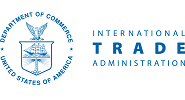Government/Policy

November 10, 2022
Commerce Revokes Russia’s Market Economy Status
Written by Laura Miller
The US Department of Commerce said on Thursday that it would no longer consider Russia a market economy in antidumping cases.
The move could allow for higher duties on Russian imports in trade cases going forward.
An analysis done by third parties for Commerce found that Russia’s government has had considerable involvement in its economy, which Commerce said has led to “distorted prices and costs in Russia which do not accurately reflect whether Russian companies are fairly pricing imports into the US.”
Criteria considered in determining whether a country is a market or non-market economy include: currency convertibility, how wages are determined, the foreign investment climate, how the government controls production, and governmental control over business decisions. Commerce found significant interference in these areas by the Russian government, particularly since Russia’s invasion of Ukraine earlier this year.
Now considering Russia a non-market economy (NME), Commerce will now apply a different methodology to calculate its AD duties than the one currently used for market economies. It will use market-based prices and costs from a country at a similar level of economic development and that produces similar merchandise.
“This decision is an important acknowledgement of the rise of Russian state-influence in their economy, which puts US industries at a disadvantage when trying to complete globally,” Commerce stated.
Trade attorney Lewis Leibowitz told SMU: “There is a chance the Russian imports will be hit with much higher dumping margins and fairly soon” as a result of Commerce’s decision.
In the most recent steel trade case decision involving Russia — the case against OCTG imports — weighted-average dumping margins were set at 12.84% and 184.21% for certain Russian companies. Should an interested party in this case, or any other antidumping case involving Russia, request a changed circumstance review, Russia’s NME status will be considered and dumping margins likely increased.
The American Iron and Steel Institute (AISI) responded favorably to the news, with AISI president and CEO Kevin Dempsey telling SMU: “We are pleased that the Commerce Department has recognized that extensive Russian government involvement in its economy distorts costs and prices throughout the Russian economy. Today’s decision will give the Commerce Department access to additional enforcement tools and will allow it to more effectively address Russian unfair trade practices that injure American industries.”
By Laura Miller, Laura@SteelMarketUpdate.com







